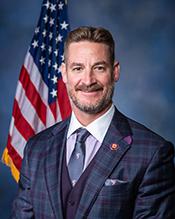0
To prevent allocations of Special Drawing Rights at the International Monetary Fund for countries that are perpetrators of genocide or state sponsors of terrorism, and to prevent United States tax dollars from directly going to the Taliban or other terrorists or terrorist-harboring nations.
1/16/2025, 9:20 AM
Summary of Bill HR 462
The bill is designed to hold countries accountable for their actions by restricting their access to financial resources provided by the IMF. By denying SDR allocations to countries engaged in genocide or terrorism, the bill aims to discourage these harmful behaviors and promote international peace and security.
Furthermore, the bill aims to protect American taxpayers by ensuring that their money does not inadvertently support terrorist activities or regimes that support terrorism. By preventing US tax dollars from going to terrorist organizations or nations that harbor terrorists, the bill seeks to safeguard national security interests and prevent the funding of violent extremist groups. Overall, Bill 119 hr 462 represents a bipartisan effort to promote accountability and transparency in international financial institutions, while also safeguarding US national security interests and taxpayer dollars.
Congressional Summary of HR 462
No Support for Terror Act
This bill establishes measures to prevent the allocation or use of certain funds to support genocide or terrorism.
Specifically, the bill requires the Department of the Treasury to instruct the U.S. Executive Director at the International Monetary Fund (IMF) to oppose the allocation of Special Drawing Rights to any country that is a perpetrator of genocide or a state sponsor of terrorism and to advocate that the IMF adopt a rule prohibiting such an allocation. (Special Drawing Rights are international reserve assets created by the IMF to supplement member countries' official foreign exchange reserves.)
Further, the bill requires Treasury, the Department of State, and the U.S. Agency for International Development to jointly review and report on assistance provided to nongovernmental organizations and international organization to ensure such assistance is not being provided to the Taliban or other terrorist organizations. Each prime awardee of this assistance must provide evidence that all subawardees are complying with U.S. anti-terrorism financing laws.
